A wish for peace at Mitaki-dera.
M
itaki-dera temple is on the outskirts of Hiroshima. The JR train is the best and quickest way to get there. Walking from the stop at the foot of Mt Mitaki-yama to the temple takes about 15 minutes.
The temple grounds feel like it is in a tropical forest. Wet moss covers steps, statues, boulders, and trees. Walking requires caution to prevent slipping on the path. It adds an element of danger and mystery.
Mitaki-dera temple is dedicated to Kannon, the Goddess of Mercy.
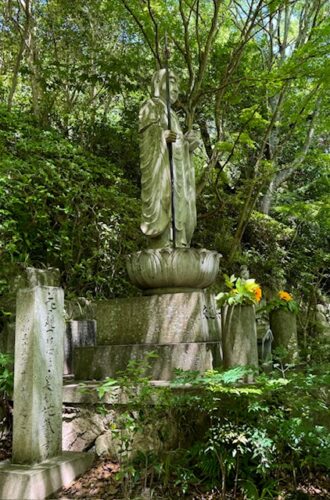
This Shingon Buddhist temple on Mt Mitaki-yama sprawls over a heavily forested valley. It was founded in 809 by Kukai and is now the 13th temple of the Chugoku 33 Kannon Pilgrimage.
Mitaki-dera waters
The temple takes its name from the three waterfalls within its grounds. The holy waters are collected and used as an offering to the victims of the atomic bomb during the annual Hiroshima Peace Memorial Ceremony.
Symbolic markers
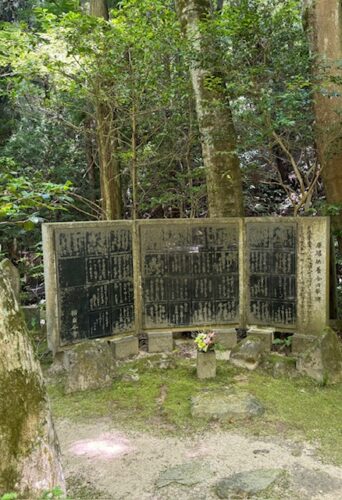
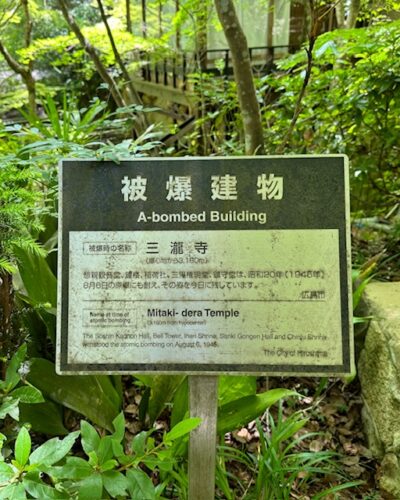
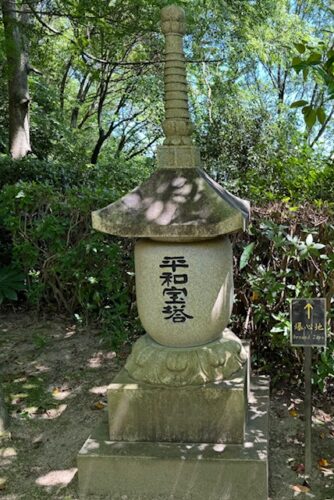
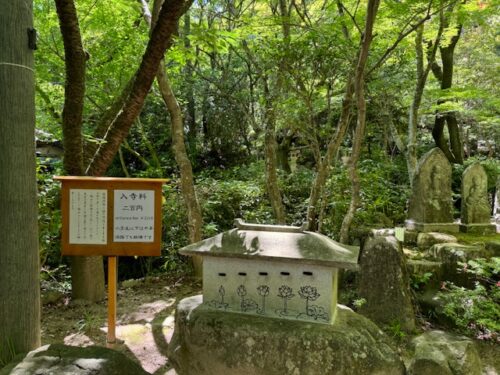
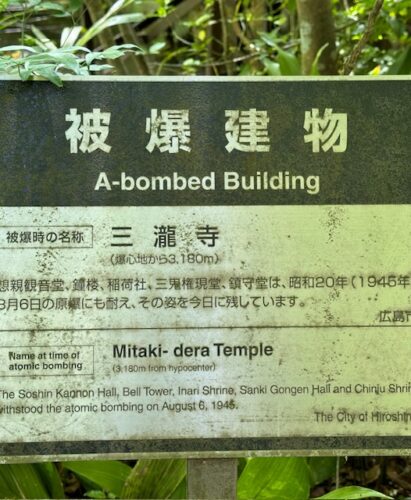
According to symbolic markers found around the temple, Mitaki-dera was also affected by the atomic bombing. The bomb’s impact was close (3,180 meters) to the temple.
Borrowed pagoda
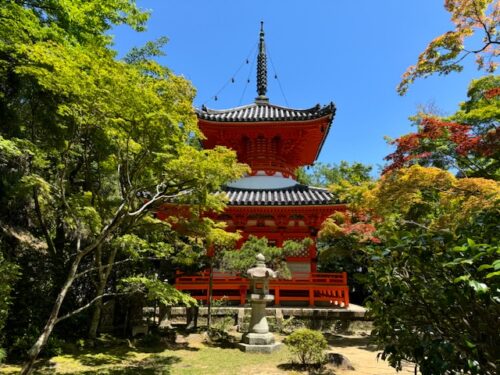
Tahōtō two-storied pagoda.
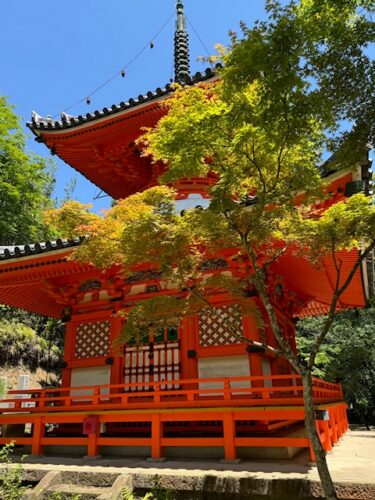
The pagoda dates back to the Muromachi period (1392-1573) and was relocated from a shrine in Wakayama Prefecture in 1951. It was donated to help soothe the souls of those lost in the A-bombing.
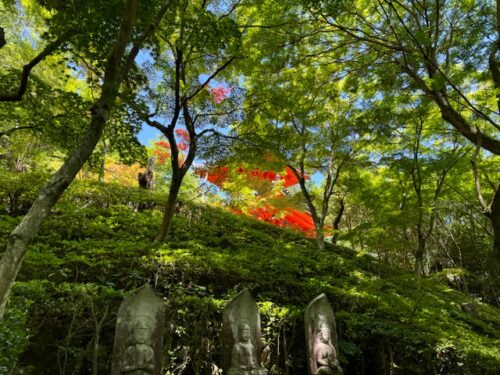
The pagoda is designated as a Prefectural Important Cultural Property. Inside is a wooden Amitabha Buddha which is a National Important Cultural Property.
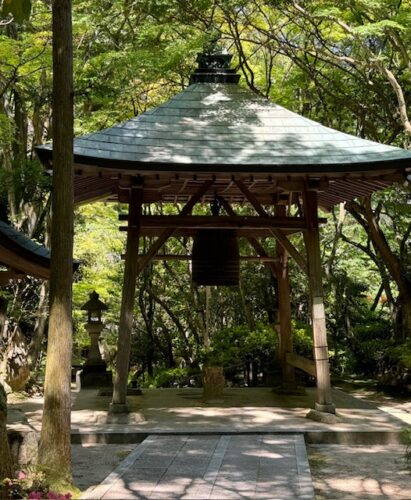
Bell tower.
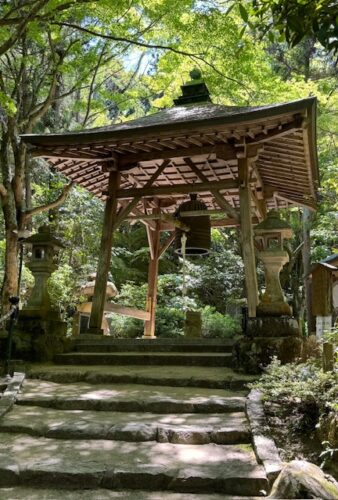
Approach to the bell tower.
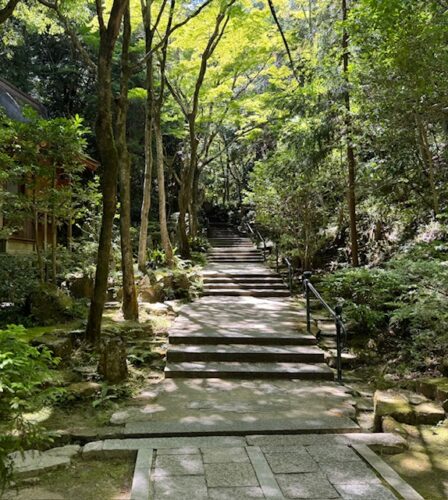
Steps lead further up the mountain.
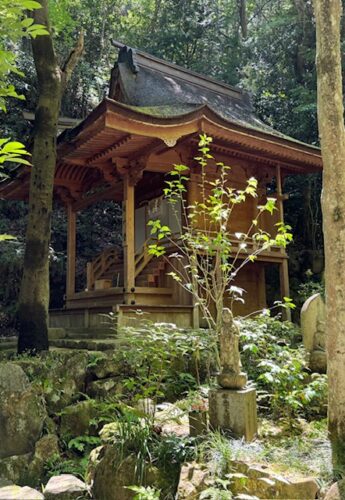
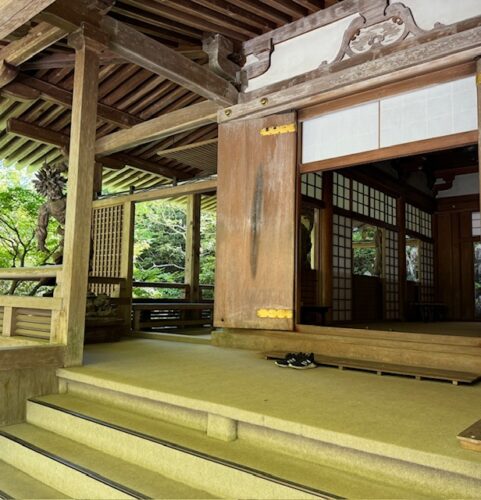
Main hall.
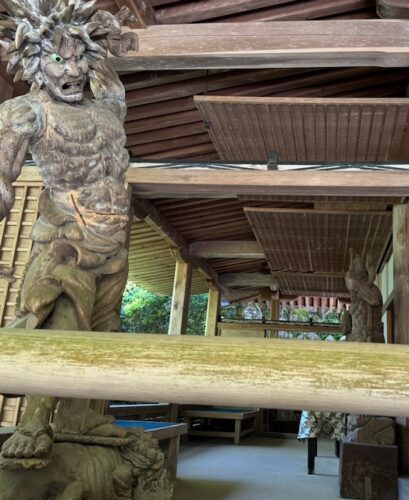
A Kongo-rikishi statue, a guardian deity that protects from evil spirits, gestures at the entrance of the main hall.
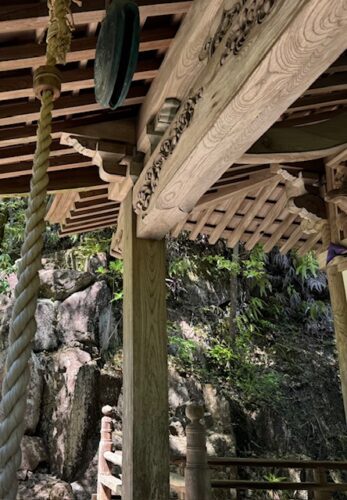
The temple office was steps away. I brought my stamp book for a goshuin from this Kukai related temple!
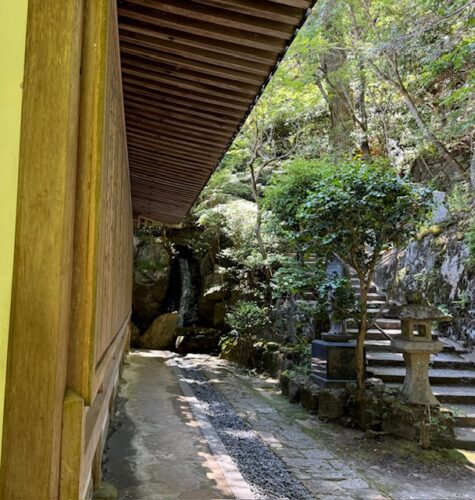
Further along behind the main hall, I saw this sign:
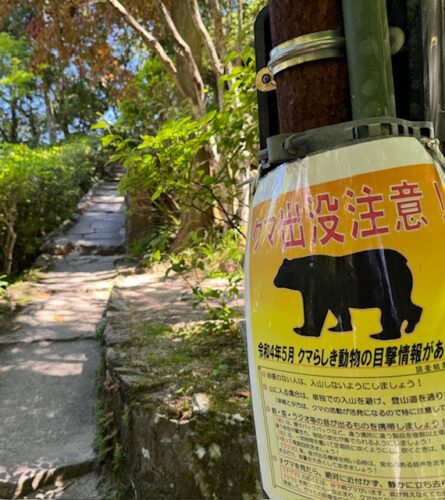
Be watchful of bears!
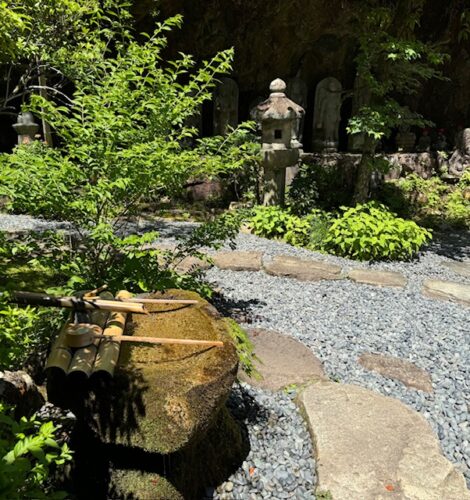
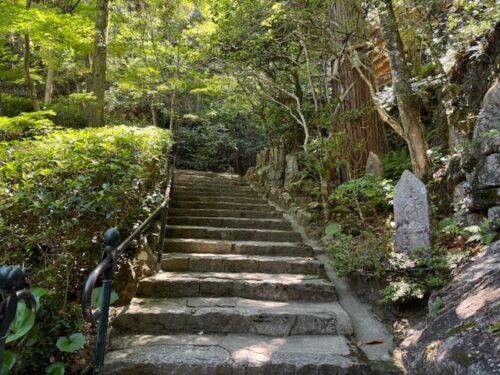
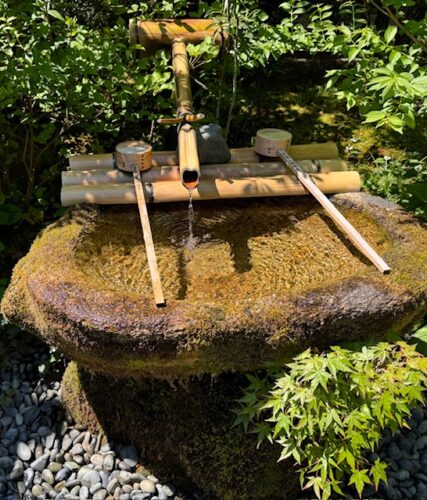
The traditional tsukubai style Japanese fountain is made with stone and bamboo.
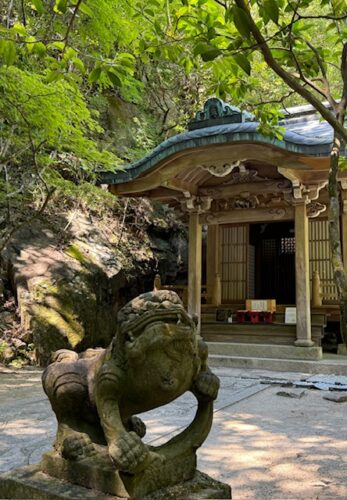
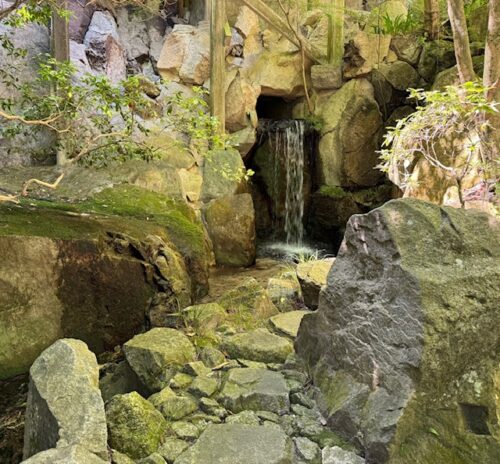
A waterfall beneath the main hall. The sounds of the waterfalls are believed to be healing to the spirit.
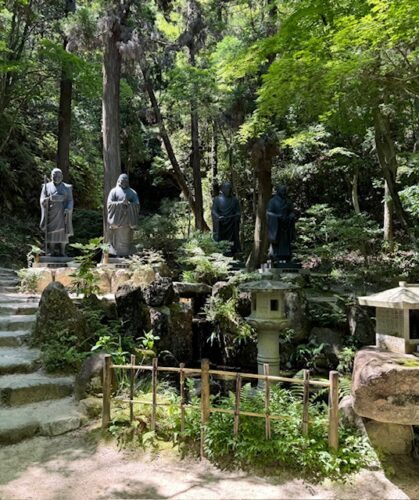
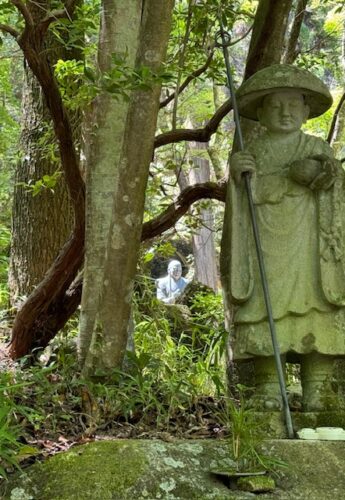
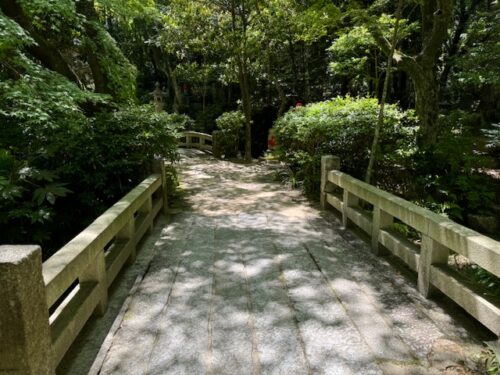
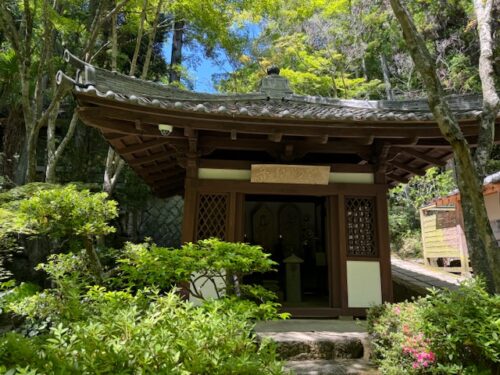
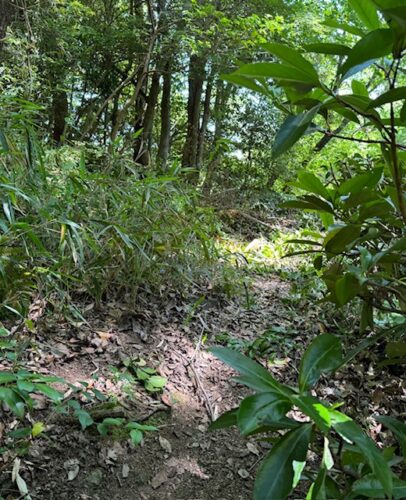
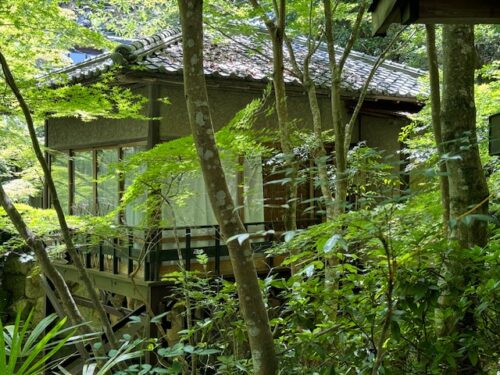
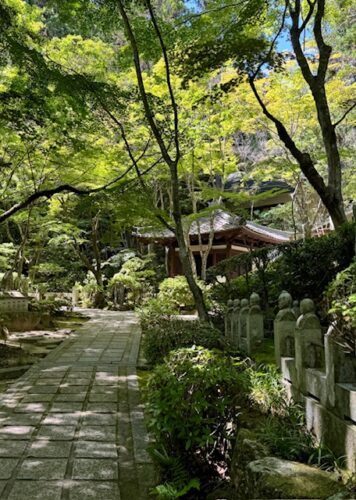
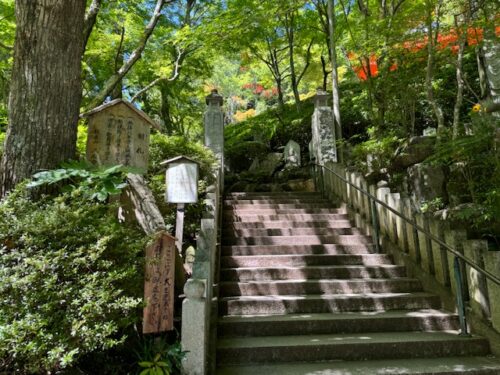
Temple of Mourning and Remembrance
It is difficult to miss the cultural impact of Mitaki-dera. Only after my arrival at the temple did I discover its connection to Hiroshima. The temple was affected by the atomic bombing, as well. It is now a place of mourning and remembrance.
I am happy that I had the opportunity to visit, learn, and pray here.
A Parting Look
My visit at Mitaki-dera temple made me think of the Memorial Cenotaph at Hiroshima Memorial Peace Park.
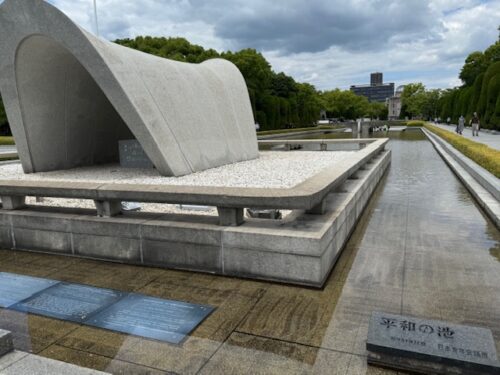
Memorial Cenotaph at Hiroshima Peace Memorial Park.
The Cenotaph honors people whose remains are in another location. It’s shape represents a shelter for the souls of the victims of the bomb.
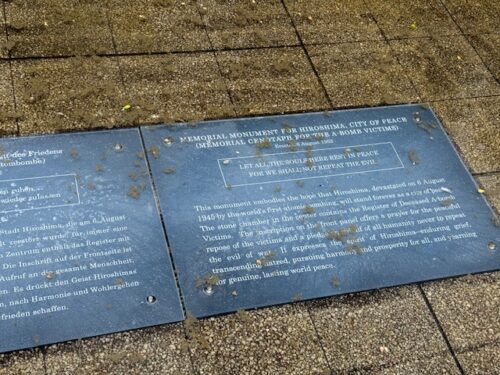
Within the monument is a stone chest that contains a listing of all the people who died as a result of the atomic bomb tragedy, regardless of nationality.
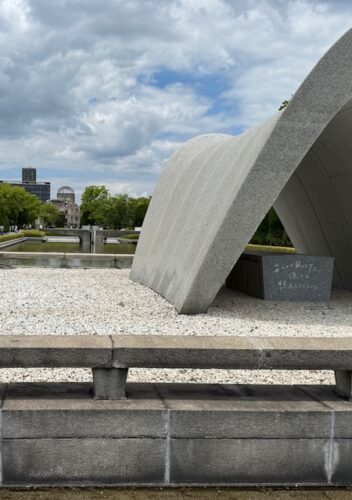
Memorial Cenotaph, Eternal Flame, and A-bomb Dome lined up at Peace Park.
Names are still added to the list as people pass away from diseases that may have been caused by the radiation given off by the explosion.
🕉️
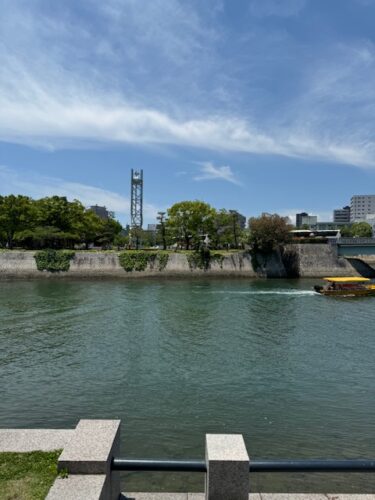
See you next time,
Baadaye and Mata ne
Shirley J 🕉️
This and several posts this summer are chronicling my pilgrimage in Japan where I am walking the 1200 kilometer-long Shikoku 88 temple pilgrimage and beyond. Read my announcement here.

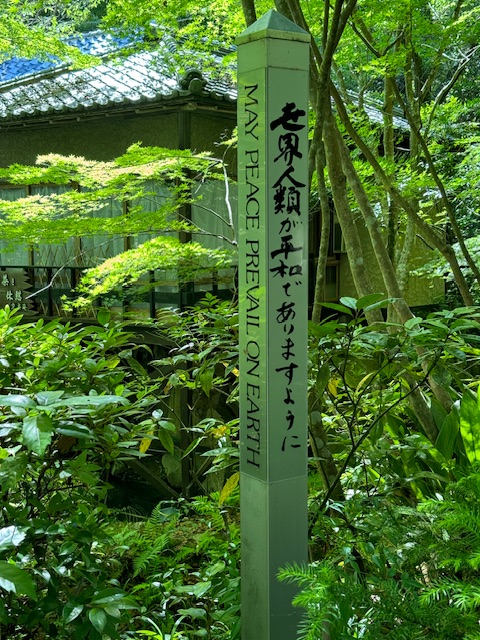
2 thoughts on “🌸 Noire Henro-san: Mitakidera Temple”
It would be hard for me to see all the evidence of destruction and keep a positive attitude. Thanks for sharing it, and good thoughts to you!
Dave, it was difficult to see. The thought I kept in my mind was that I am a visitor. The people who live(d) here had it worse. Yet, they welcome all of us to share in the rebirth and hope of their city.🕉️
Comments are closed.